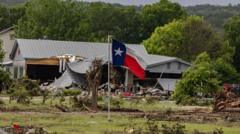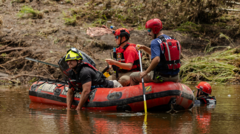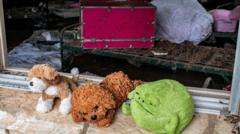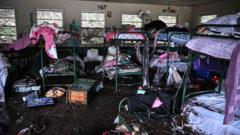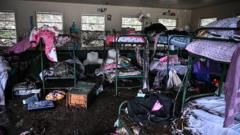A significant measles outbreak has been reported in the United States, with precautions recommended for travelers to prevent spread and ensure safety while in crowded areas.
Travel Precautions Amid Measles Resurgence in the U.S.

Travel Precautions Amid Measles Resurgence in the U.S.
As summer travel begins, experts raise alarms over the resurgence of measles outbreaks across the U.S., especially in Texas.
Measles has unfortunately returned to the forefront of public health concerns in the United States, with a staggering number of over a thousand cases reported to the Centers for Disease Control and Prevention (CDC) in 2025, primarily due to a severe outbreak in Texas that has already claimed at least three lives. Given that measles is one of the most highly contagious viruses known, summer travel poses significant risks for further spread, particularly in crowded settings such as airports and on airplanes.
Historically, travel-related outbreaks have been a concern; a notable instance occurred in 2014 at Disneyland, where exposure during a visit led to more than 100 infections. Fortunately, there is effective vaccination available, and ensuring that all family members are vaccinated prior to travel can greatly enhance safety during journeys.
The measles virus is not only easily transmissible but also capable of lingering in the air and infecting people for up to two hours, along with surviving on various surfaces. Thus, close proximity to an infected individual is not mandatory for transmission. Additionally, the infectious period for measles starts before the well-known rash appears. Individuals who are starting to experience measles symptoms often have severe respiratory issues, enabling the virus to spread through their respiratory droplets.
Travelers, especially those most at risk—namely, unvaccinated and immunocompromised individuals—should consider wearing masks in busy environments to safeguard against measles and other airborne illnesses. High-risk individuals may need to avoid crowded places altogether, especially indoors, to minimize their exposure. Taking proactive measures and staying informed can be crucial in protecting personal health during this ongoing outbreak.
Historically, travel-related outbreaks have been a concern; a notable instance occurred in 2014 at Disneyland, where exposure during a visit led to more than 100 infections. Fortunately, there is effective vaccination available, and ensuring that all family members are vaccinated prior to travel can greatly enhance safety during journeys.
The measles virus is not only easily transmissible but also capable of lingering in the air and infecting people for up to two hours, along with surviving on various surfaces. Thus, close proximity to an infected individual is not mandatory for transmission. Additionally, the infectious period for measles starts before the well-known rash appears. Individuals who are starting to experience measles symptoms often have severe respiratory issues, enabling the virus to spread through their respiratory droplets.
Travelers, especially those most at risk—namely, unvaccinated and immunocompromised individuals—should consider wearing masks in busy environments to safeguard against measles and other airborne illnesses. High-risk individuals may need to avoid crowded places altogether, especially indoors, to minimize their exposure. Taking proactive measures and staying informed can be crucial in protecting personal health during this ongoing outbreak.







